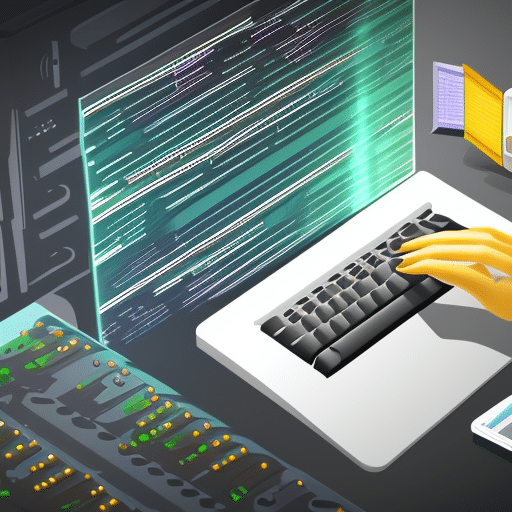
Review of DataCamp R Programming Courses 2023
In this review, we’ll discuss DataCamp’s 6 best courses for learning R programming so you can decide which tutorials are worth it for you.
Course Retriever is reader-supported. When you buy through links on our site, we may earn a commission.
Want to learn how to become a C++ programmer quickly and easily by yourself at home? Follow our guide and get started on your journey!

Are you hoping to learn C++ quickly and easily by yourself? It can be a challenging language to tackle – but we’ve got you covered!
In this post, we’ll provide you with an easy-to-follow guide on how to take the first steps toward becoming a confident C++ programmer. With our clear instructions and helpful advice, you’ll be able to pick up the basics of one of the world’s most popular programming languages quickly and painlessly.
Learning a new programming language like C++ can be daunting. After all, there’s a lot to learn and you have to invest the time and effort necessary to master it.
However, with dedication and the right resources, you can learn C++ quickly and easily.
Once you find your motivation — whether it’s earning a higher salary or experiencing the satisfaction of developing something new — you can use that drive to successfully learn this versatile language.
So focus on what motivates you most and get learning. C++ is well within your grasp!
There are several online tutorials available to help you learn the C++ language quickly and easily. Taking online tutorials is an ideal way for beginners to grasp the basics without any stress.
Here’s a list of the best online tutorials for quickly and easily learning C++:
1. C++ Best Practices for Developers
2. C++ Design Patterns: Behavioral
3. C++ Design Patterns: Creational
5. C++ Essential Training for Career Changers
7. C++ Standard Template Library
9. Introducing Functional Programming in C++
If you’re ready to learn C++ quickly and easily, immerse yourself in the language by reading articles about it.
Articles from experienced developers offer helpful insights into coding conventions and best practices. This can give you an edge as you learn the basics.
Reading articles can also help you stay up-to-date with industry trends. This is important when writing code for your projects.
So make reading articles a regular part of your learning journey!
Here’s a list of the best articles for quickly and easily learning C++:
1. What Is C++? (And How to Learn It)
2. Java vs. C++ Comparison: What Are the Differences in These Programming Languages?
3. Python vs. C++: Which to Learn First and Where to Start
4. Kick Off Your Career in C++
6. What C++ Can Be Used For & Why You Should Care
7. C++ Hello World: An Introduction to Programming in C++
If you are looking to learn C++ quickly and easily, consider combining online learning and reading books.
Books can provide a more in-depth look at specific topics. Not only will reading material help fill any gaps, but it can also give you the inspiration needed to propel you through the learning process.
So take advantage of all the resources available to learn C++. Don’t miss out on this chance to learn everything there is to know!
Here’s a list of the best books for quickly and easily learning C++:
1. Modern C++ for Absolute Beginners: A Friendly Introduction to C++Step (Slobodan Dmitrovic)
2. The C++ Programming Language (Bjarne Stroustrup)
3. C++ Programming (Emily Jones)
If you’re looking for a more structured way to learn C++, then taking an online course might be the perfect option for you.
With an online course, you can learn at your own pace from home. You also get access to experienced instructors who can offer tips and tricks for learning C++ quickly and easily.
Plus, there many courses available, so be sure to find the one that best suits your learning style!
Here’s a list of the best online courses for quickly and easily learning C++:
1. C++ Nanodegree (Udacity)
2. Coding for Everyone: C and C++ (University of Pennsylvania)
3. C++ Basics: Selection and Iteration (Codio)
4. C++ for C Programmers, Part A (University of California, Santa Cruz)
5. Introduction to C+ (Infosec)
6. Introduction to C++ Programming and Unreal (University of Colorado System)
7. More C++ Programming and Unreal (University of Colorado System)
8. Programming in C++: A Hands-on Introduction (Duke University and Johns Hopkins University)
9. Writing Secure Code in C++ (Georgia Institute of Technology and University of Pennsylvania)
Absolutely! C++ is an incredibly popular and versatile programming language that provides a great foundation for learning to program. It’s also used in a wide range of industries, from game development to finance.
There are plenty of options for those on a budget who still want to learn C++. One great way to start your journey learning C++ without spending any money is with online tutorials from LinkedIn Learning.
If you’re interested in formal instruction, then you could look into our learning partners that offer free trials:
1. Coursera
2. Pluralsight
3. Udacity
Learning C++ from scratch is a daunting task, but it also can be one of the most rewarding experiences. It’s an essential part of understanding computer science, and mastering this language makes you a powerful programmer.
The first step to learning C++ from scratch is gathering resources to help your journey. There are many fantastic online courses you can try. But if courses aren’t your thing, then read some books.
Learning C++ can be a fantastic and rewarding experience, but it takes dedication and hard work. How long it takes for you to learn C++ depends on your current level of knowledge and the amount of time you’re willing to devote to the process.
If you don’t have any programming experience before starting with C++, then it may take anywhere from six months to one year or more. Even if you already have some coding skills, mastering all aspects of the language can still take significant time due to its complexity.
No, learning C++ in one day is impossible. Although it may seem achievable to some, learning a programming language of this caliber requires dedication and practice.
Learning C++ can be made easier by leveraging existing resources such as tutorials from reputable sources like LinkedIn Learning. Also consider taking online courses offered on platforms like Coursera, Pluralsight, and Udacity.

In this review, we’ll discuss DataCamp’s 6 best courses for learning R programming so you can decide which tutorials are worth it for you.

In this review, we will discuss how the Learn SQL nanodegree course from Udacity will introduce you to the world of data analysis.

In this review, we’ll list the 5 best free online C++ programming courses for beginners.